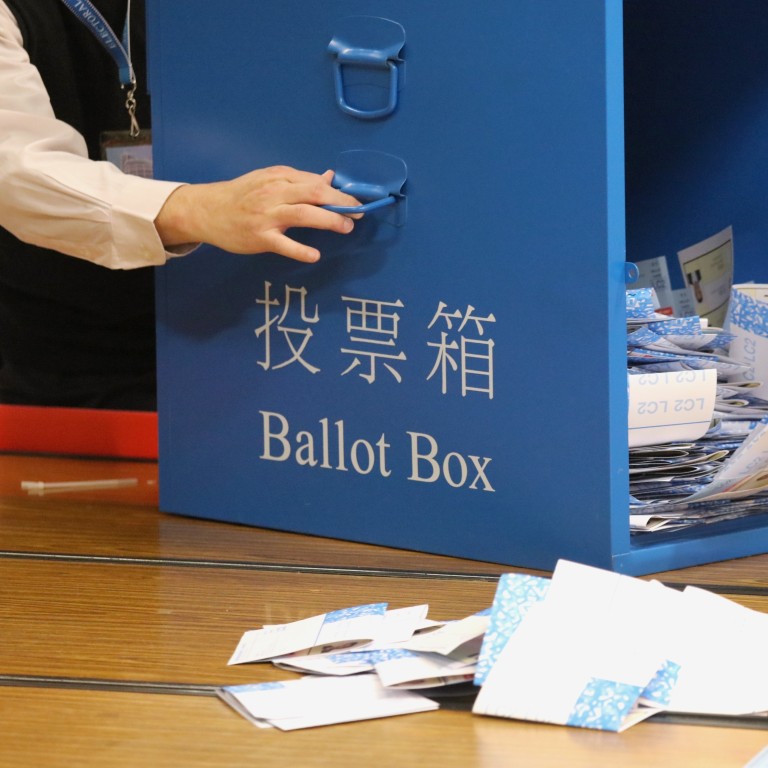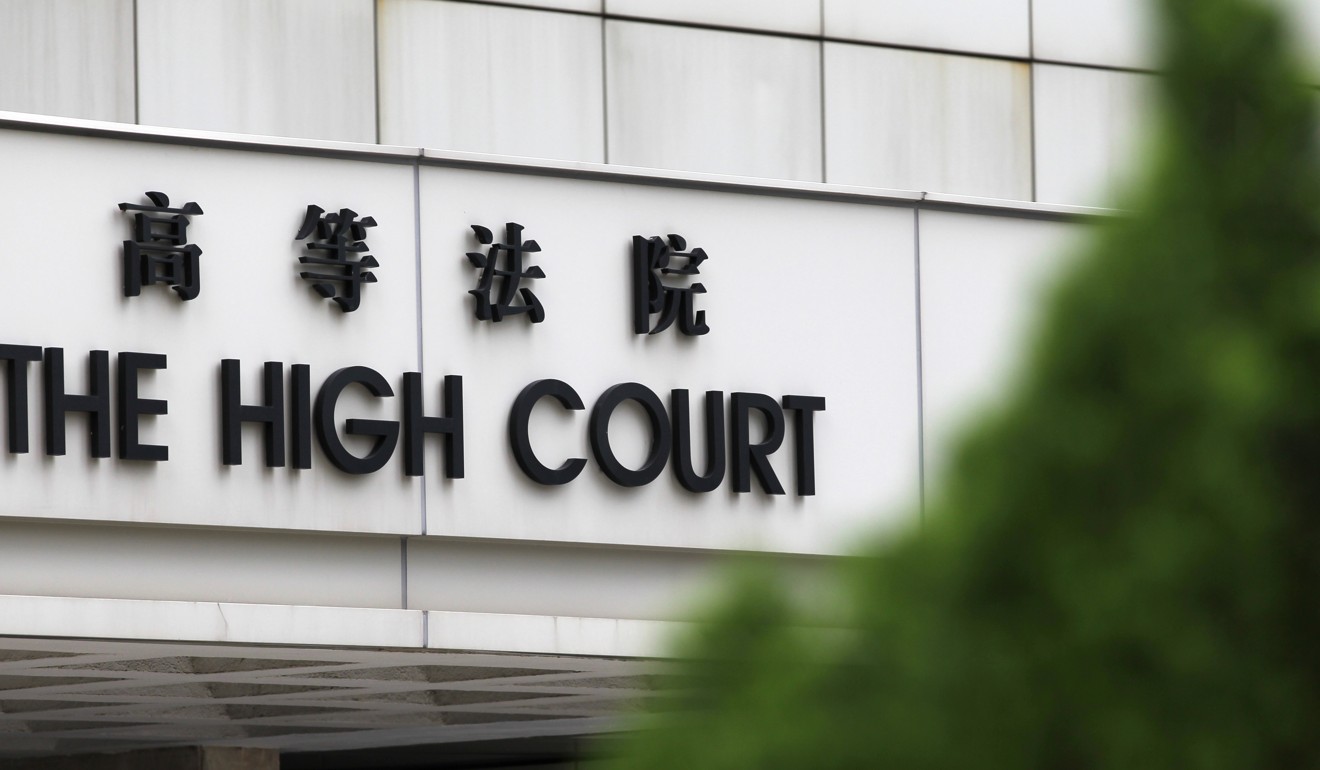
Hong Kong court allows appeal by city’s largest police group seeking ban on publication of district council voters’ private details
- Interim injunction issued by Court of Appeal on Tuesday stopping election officials from distributing register of voter records
- Junior Police Officers’ Association said the urgent bid made to combat online doxxing – the malicious release of personal details – against police staff and their families
A Hong Kong court has allowed an appeal by the city’s largest police group which sought an immediate ban on voters’ personal details being made public.
In its judgment on Tuesday, the Court of Appeal issued an interim injunction restraining the Electoral Affairs Commission, the chief electoral officer and the electoral registration officer from publishing, or making available for public inspection, the voters’ registry for the district council elections on November 24.

The temporary order issued on Tuesday would also stop election authorities conveying to members of the public any information which would enable someone to link voters’ names with their respective home addresses.
But the appeal court has permitted authorities to supply an extract of the finalised register to candidates, who are validly nominated, for the upcoming election.
Applying for judicial review and an interim injunction at the lower court last Tuesday, the association, which represents more than 20,000 officers, said the urgent bid was meant to combat online doxxing – the malicious release of personal details for public harassment – against officers and their families.
The court, presided by justices Jeremy Poon Shiu-chor and Johnson Lam Man-hon, was of the view that imposing a temporary ban to limit public access to the finalised voters’ registry, pending the determination of the judicial review proceedings, would not affect the overall integrity or regularity of the district council elections.
“We consider a just and fair balance is struck to adequately address the immediate private interest of protecting the privacy of a great majority of the police force … from the real and imminent threat of ongoing doxxing and the immense public interest involved in ensuring the integrity and regularity of the [district council] election,” the judgment reads.
Doxxing has become a powerful weapon in the Hong Kong protests
The court also found doxxing “a considerable threat” to the city’s elections, in that it might deter people from exercising their rights to vote under article 26 of the Basic Law – the city’s mini-constitution – if the names of voters were linked to their residential addresses in the final register.
“We venture to suggest that the government should move quickly to address the problem,” it said.
Lawyers for the authorities had earlier hit back at the JPOA application, saying there was no evidence the electoral register was the source of leaked personal details of police officers and their families.
They argued the publication of voters’ names along with their addresses meant people could object to incorrect data and spot corrupt election practices. It also promoted a fair and competitive election by allowing candidates to canvass, they said.
Hong Kong police group takes legal action to keep officers’ names from election registry
At a closed-door hearing last Wednesday, Mr Justice Anderson Chow Ka-ming dismissed the application on the grounds that privacy concerns of police officers, placed against the importance of a fair election process, did not warrant an immediate injunction.
The court heard that six political parties had obtained the full version of the finalised register for the district council elections. Another 26 people, 14 of whom had applied to run for election, had also acquired extracts of the register before the court proceedings.
In the present judicial review, the judges ruled there was a “sufficiently cogent case” to challenge the provisions in sections 20 and 21 of the Electoral Affairs Commission Regulation, which provided the legal basis for the inspection of the final register and the supply of its extract, in terms of their potential infringements of the voters’ right to privacy guaranteed by Article 14 of the Hong Kong Bill of Rights.
The court found that personal information of police officers and their families have been distributed “indiscriminately” across social media platforms, accompanied by abusive remarks, harassment, intimidation, and serious threats to personal safety, some of which were directed even against children.
Government scrambles to protect election candidates from doxxing
The judges held that the availability of the register posed a significant risk of misuse of police officers’ personal information for doxxing purposes.
On safeguarding the integrity of the election, the judges said given the final register had been shared with some political parties and potential candidates, it was only fair to allow all validly nominated candidates to acquire an extract relevant to their own constituency.
The judges rejected claims that the openness of the forthcoming election would be prejudiced by an injunction restraining public access to voters’ names and home addresses. They also dismissed the notion that the injunction would weaken public vigilance on election malpractice such as vote rigging.
Instead, they said candidates or their political parties and supporters should be the first to vigilantly monitor the election process, rather than the public.
“We do not think it can be seriously suggested that the electoral authority relies exclusively or heavily on the public to detect election malpractice.”
A spokesman for the Constitutional and Mainland Affairs Bureau – which governs the city’s electoral authority – said the government respected the court’s decision and had suspended public inspection of the final voters’ registers for this year’s elections until further notice.
